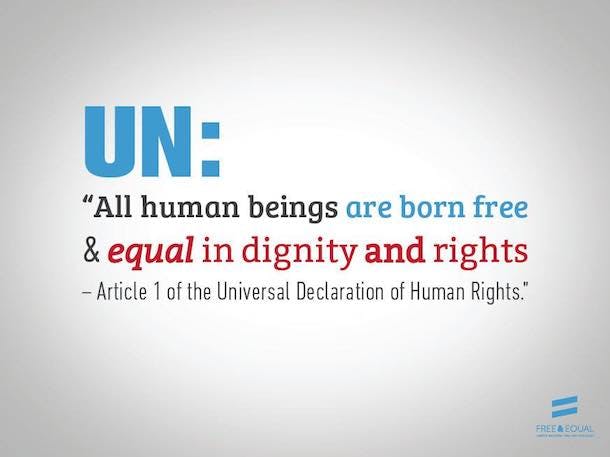
Yesterday, the U.S. Administration rescinded federal guidelines related to the protection of transgender students in our nation’s schools. This discouraging news runs counter to American values and hurts the country’s ability to champion human rights around the world. For the United States to be credible in advancing human rights and combating discrimination on the international stage, it needs to also set an example right at home.
Congressional Representative Ileana Ros-Lehtinen (R-FL) was right to call the new policy directive scrapping protections for transgender students “lamentable.” While it is helpful the new directive from the Justice and Education departments includes a provision that “All schools must ensure that students, including L.G.B.T. students, are able to learn and thrive in a safe environment,” it is nonetheless difficult to square this with the order’s predominately exclusionary basis.
For the UN Foundation it is simple: Trans rights are human rights.
Moving forward, it is vital to ensure visibility, both for the trans community as well as for gay, lesbian, bisexual, and intersex people everywhere. The United Nations Free and Equal Campaign, a global public information campaign of the UN Human Rights Office focused on raising understanding of the impact of homophobia and transphobia and UN Foundation partner, is a good place to start. Its namesake references Article 1 of the Universal Declaration of Human Rights, which reads simply: “All human beings are born free and equal in dignity and rights.”
Viral videos from the UN Free and Equal campaign, like Faces for example, remind us that LGBT people are integral parts of our communities, schools, and families. Similarly, The Price of Exclusion, narrated by actor Zachary Quinto, explores the devastating impact of LGBT social exclusion. “Between half and two-thirds of LGBT youth experience bullying in childhood forcing one in three to skip or even drop out of school, ” the video notes. Moreover, it notes the startling statistic that “young trans people are almost 10 times more likely to have attempted suicide than the general population.” Finally, the video Why We Fight drives home the message that LGBT advocates the world over have an ally in the UN.
In tandem, the UN Foundation has also provided trans equality champions – including Jazz Jennings (2016), Laverne Cox (2015) – a global platform through the Social Good Summit to elevate awareness on challenges facing the trans community as well as to discuss how advocates can better work hand in hand for progress.
Progress clearly requires ensuring trans youth feel safe and comfortable at school.
To support the groundswell of advocates across the U.S. who oppose the administration’s new directive, I hope you will join me in standing up for human rights by:
· Viewing and sharing the videos Faces, Price of Exclusion, and Why We Fight on UN Free and Equal Campaign website;
· Learning more about the leadership of the UN to combat violence and discrimination based on sexual orientation and gender identity by clicking here;
· Reading the statement from then UN Secretary-General Ban Ki-moon in 2012 that calls LGBT bullying a human rights violation; and
· Exploring the global Stand Up for Someone’s Rights effort of the UN Human Rights Office.



 View All Blog Posts
View All Blog Posts